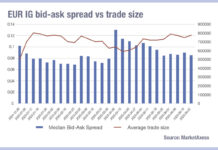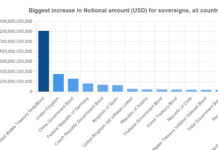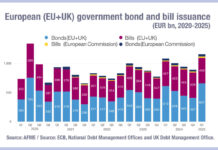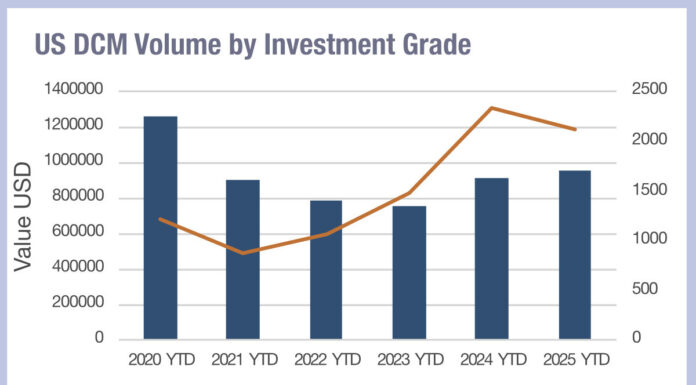The international Capital Markets Association (ICMA) has proposed a deferral regime for post-trade sovereign bond data, to counter the ‘complicated’ approach currently allowed.
In a new position paper, ICMA states the current regime allows four ways for national competent authorities to mix and match the application of omission of trade volumes for a four-week period, and indefinite deferrals and aggregation of price and volume trade data.

“In practice, these deferred trades are mostly aggregated indefinitely or, confusingly, in combination with volume-only 4-week deferrals,” notes author Elizabeth Brooks Callaghan. “This has resulted in a high volume of indefinitely aggregated transactions, which effectively hides a significant amount of valuable post-trade data from the market, thereby undermining the benefits, and objectives, of the EU transparency regime.”
This muddies the water for a potential roadmap to a meaningful sovereign bond populated consolidated tape in the EU, argues the trade body, requiring the elimination of indefinite aggregation of sovereign bond market data.
Disclosure of trades carries risk to the trading firm if the disclosure reveals their own positions and therefore tells counterparties how they will need to trade to get out of those positions.
Having established a taskforce to assess identify the key components that impact sovereign bond market liquidity and to assess the extent to which these could affect sensitivity to information leakage, using a quantitative assessment provided by Propellant, it was determined that most transactions should be published as close to real-time as logistically feasible.
However, where the underlying bond is not particularly liquid, or transaction size is relatively large and information leakage could put a liquidity provider at risk, deferrals were seen as appropriate.
The Taskforce’s consensus proposal was for three deferral categories to cover the most sensitive trades:
Category 1: for trades that are considered relatively small, but where the underlying issue size is also relatively small;
Category 2: for trades that are relatively large;
Category 3: for trades that are extra-large.
ICMA proposes that in these cases, transactions will still be reported weekly, in aggregate form, but subsequently disaggregated in line with the time for each relevant deferral period.
“While ultimately it will be for ESMA to decide on the actual deferral categories, and the appropriate period for each category, many in the Taskforce felt that for the eventual CT data to be meaningful, while also protecting large and illiquid trades, there should be a maximum deferral period of 12 weeks,” wrote Brooks Callaghan.
©Markets Media Europe 2025


























